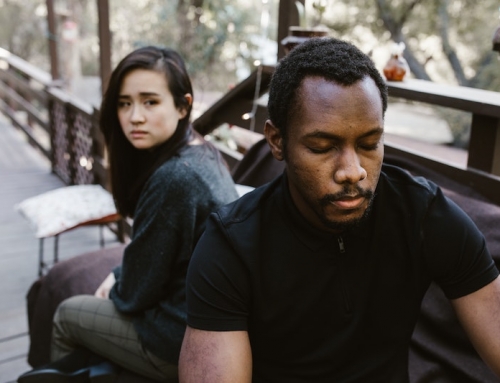Managing social issues can be a challenge when introverts and extroverts are falling in love. It may seem like personality types don’t really come into the picture when two people get together, and it isn’t always an issue, until it is.
You’ve heard the saying that opposites attract and that is sometimes true. One person admires someone who has what they lack. For introverts, they may be in awe of how their extroverted partner can manage social issues . This can be part of the attraction that helps falling in love. They may come to rely on their partner to handle those issues in the relationship so they don’t have to. Things like invitations, social gatherings, even trips out to shop or do errands can be taxing on introverts. The more time they spend in public, the more they want to be at home in their secure and familiar surroundings to recharge and relax. Parties and other social gatherings can be rather stressful and even draining on their energy. They may avoid or make excuses why they cannot (or will not) go out.The opposite is true of the extrovert. They thrive on social time and love to shop or go on outings with friends to sporting events or for meet ups at bars or restaurants. Instead of draining their energy, they get charged up and excited to see people and interact with friends. When they don’t have that interaction that feeds them, they may become bored or irritable, get “cabin fever” and just want to get out and do something.
If you’re in a relationship that contains these polar opposites it’s crucial that you both recognize the challenges you face when it comes to managing social issues and obligations. Falling in love with someone that different can often be a challenge. Friends, family and acquaintances will have to be prioritized in order of importance and decisions have to be made as to what social functions or events the introverted partner is willing to compromise on.
Both partners have to do some compromising and be mindful and protective of each other when it comes to these social obligations with friends and family. The extrovert may want to go out and see people several days a week while the introvert may not want to go at all, but can force her/himself to go at least twice to be with their partner and to show unity and effort to keep their partner happy.
On the flip side, the extrovert may want to go out every other night, but seeing that their partner is less than excited about it, can compromise and do dinner and a low key movie night at home instead. It’s about knowing what your partner needs to feel okay, and helping them to achieve that. This requires a great deal of communication in order to maintain the feeling of falling in love with someone special.
It can be a bit rough to figure it all out in the beginning, because you want to please your partner and make them happy; but self-care and self-awareness also demands that you look after your own needs and show your partner how to help you do that. It’s difficult for some introverts to open up their home, their inner sanctum, to outsiders, though that can be a good compromise for some couples. The extroverted partner invites people in for a game night or a visit which allows the introvert to have limited contact (say hello then retreat to their room), and the two partners’ needs are both satisfied.
The main thing is that both of you are honest about what your expectations are and about how you’re feeling at any given time. Check in with each other to make sure that neither of you are feeling stressed or resentful about the other’s social activities. Introverts want to be included, and they also want the freedom to opt out if it becomes too difficult for them to manage in a particular situation. Both of you should strive to stretch and grow while giving each other the freedom to be yourself and enjoy the social interaction that makes you happy.








